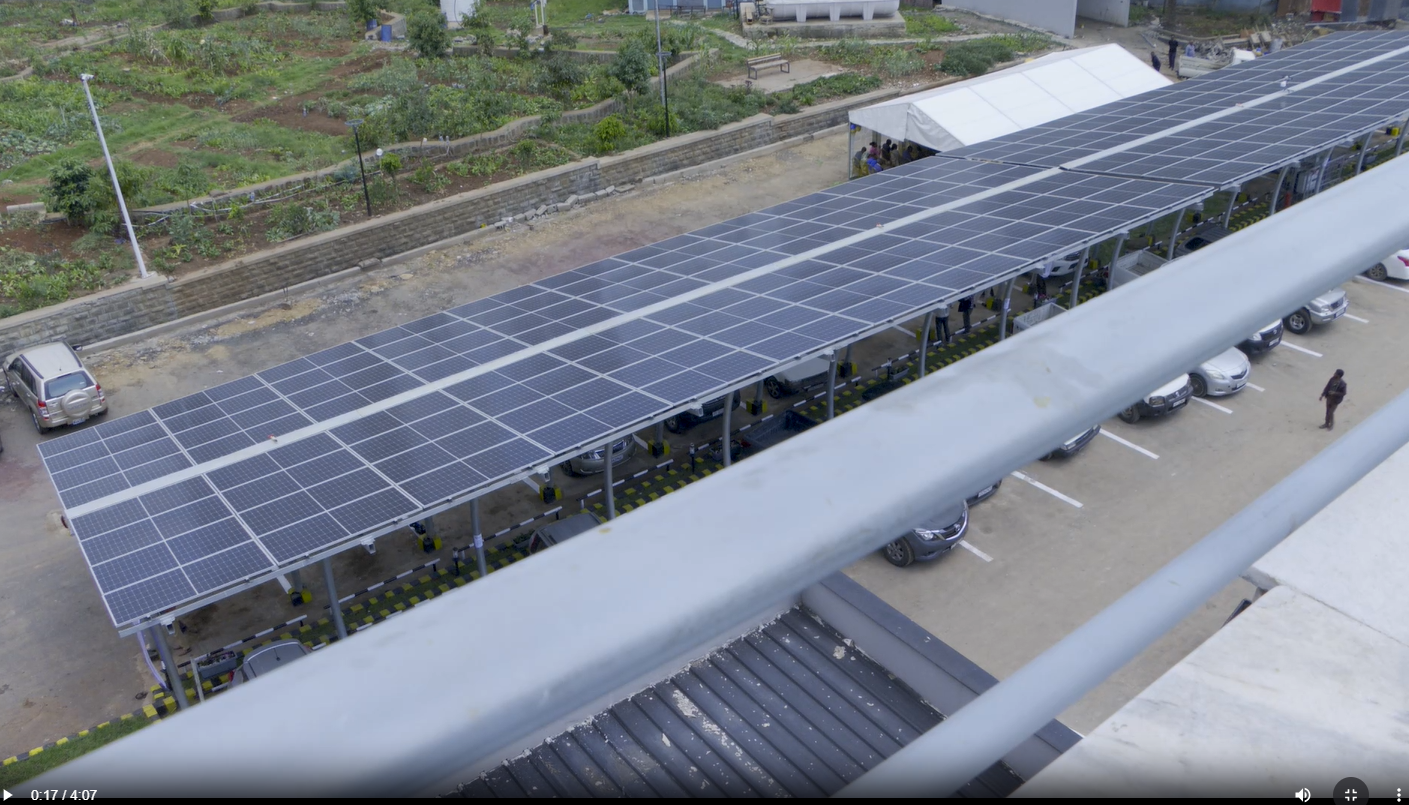First Grid-Connected Bi-Directional Smart Meter Solar Initiative Launched - ENA English
First Grid-Connected Bi-Directional Smart Meter Solar Initiative Launched

Addis Ababa, June 12, 2025 (ENA) — Innovative solar rooftop initiative boasting a capacity of 100 kilowatt-peak (kWp) was inaugurated today.
Water and Energy Minister Habtamu Itefa inaugurated the first solar project featuring bi-directional smart meters that connect to the grid with the view to serving as a model for enabling families to generate and use their own renewable energy.
Stating Ethiopia's strong dedication to harnessing renewable energy and modernizing its national grid, he noted that the efforts made in the past nine months have considerably increased the country's off grid electricity supply.
The actions taken to boost electricity access through solar energy have allowed over 10,000 households to access electricity within the last nine months, the minister added.
According to him, the cutting-edge rooftop system features a capacity of 100kWp and is fitted with advanced bi-directional smart meters.
These essential devices allow for the effortless transfer of electricity in both directions, drawing power from the national grid when necessary, and crucially sending excess solar-produced electricity back into the grid.
"This project at our own headquarters sends a strong message of our intentions. Our collaboration with the International Solar Alliance greatly enhances the impact of this initiative, bringing worldwide expertise and common goals to our national energy plan."
This initiative is set to significantly address a portion of the ministry's energy needs with clean sources, serving as a practical example for future projects in both public and commercial sectors throughout the country
Furthermore, Habtamu indicated that this completed solar energy initiative stands as a model for individuals aiming to generate and utilize their own energy.
On his part, Water and Energy State Minister Sultan Wali said solar systems have gained significant popularity in Ethiopia, particularly in remote areas.
These systems are being implemented not only in residential settings but also in educational institutions and medical centers, thereby enhancing energy access in communities that previously struggled with reliable power sources.
He pointed out that solar energy had previously been employed for the preservation and cooling of fruits and vegetables in the industrial sectors of Oromia and Sidama regions.
This innovative use of solar technology not only helped maintain the quality and freshness of agricultural produce but also showcased the potential of renewable energy sources in enhancing food security and supporting local economies.
Moreover, solar pumps are now being widely adopted for irrigation purposes. "This shift towards renewable energy sources not only aims to improve crop yields but also to provide farmers with a more sustainable and cost-effective means of accessing water for their fields."